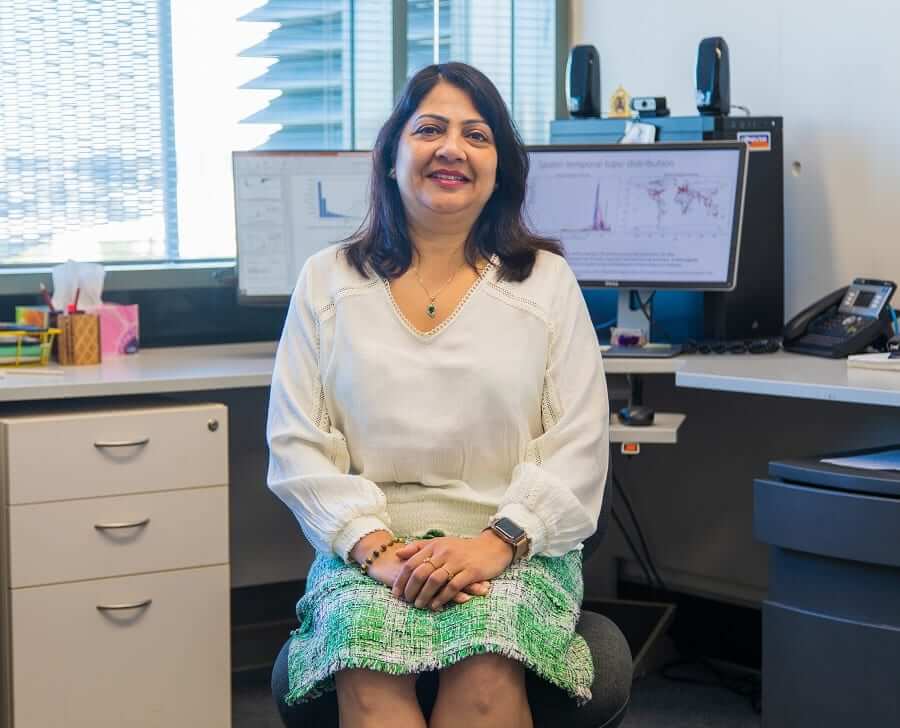Social media can be a great place to feel connected to others and express yourself freely, but at its worst, it can become an online platform for hate and abuse. On a daily basis, it’s easy to come across vile content, especially those targeted at women.
Thankfully, a new Twitter algorithm created by Queensland researchers hopes to nip this in the bud.

“Currently, it’s on users to report abuse they receive. With our solution, we can protect women by identifying misogynistic content online,” explained Professor Richi Nayak, a machine-learning researcher at Queensland University of Technology.
“Female users in particular can receive really brutal messages online. Just look at the treatment of female celebrities, or even Australia’s female Prime Minister.”
READ ALSO: Twitter launches dedicated tool to curb domestic violence in India
A deep learning algorithm was created by Nayak along with Professor Nicolas Suzor and research fellow Dr Md Abul Bashar in a collaboration between QUT’s faculties of Law, Science and Engineering, and the Digital Media Research Centre.
The algorithm, called ‘Long Short-Term Memory with Transfer Learning’, mined 1 million tweets and narrowed them down by three abusive words – rape, slut, and whore. The researchers also generated a rule-set to include parameters beyond abusive words.
“We looked at whether the content was targeted to a particular person or group, if there were specific threats or a wish for violence, if it included objectifying or sexual material, if it advocated hateful conduct, and so on,” Prof. Nayak told Indian Link.
This kind of ‘context learning’ has been crucial, as the presence of certain abusive words alone doesn’t mean that the content is misogynistic. Online, such tweets could be meant as a joke, or they could be sarcastic.
“You know how kids talk on social media these days!” the researcher chuckled.
Presently, a phrase like ‘go back to the kitchen’ might not typically be highlighted as problematic content because it doesn’t contain outright abusive language. Most systems would not typically identify such a tweet as misogynistic when it can’t understand the necessary context.
“Our algorithm proves that systems have the capability to understand context. This is crucial as learning misogyny is very different from merely identifying abuses online.”
To combat this hurdle, the Twitter algorithm was taught to identify linguistic patterns.
“It was developed to learn language patterns. It first learnt formal English language patterns, then we added more information like the language patterns employed in tweets which may not always be the most grammatically correct,” Nayak elaborated.
Over time, their model learns and develops its contextual and semantic understanding of language with continued exposure to content.
The research team has currently reported 75 per cent accuracy in identifying misogynistic content through the algorithm.
In the future, there’s scope for such an algorithm to be adapted to understand and identify racist or homophobic tweets too.
“With new described data sets, the algorithm has the ability to understand other context as well,” the researcher confirmed.
READ ALSO: Adelaide’s Prof. Purnendra Jain wins Japan’s highest civilian order

According to Nayak, this kind of research can alter the way we utilise social media.
“Currently, social media platforms can identify some patterns, and they have systems in place to get warnings about hateful speech, but they have a huge volume of content to go through. Moreover, there’s been arguments surrounding the freedom to share your views freely online,” she said.
The hope is that such an algorithm can improve a typical female user’s experience on social media.
Although it has been specifically programmed for Twitter at present, the algorithm could eventually be deployed as a plug-in for users. In fact, Nayak says it could be expanded to accommodate misogyny in other languages like Hindi.
“I’m a machine learning researcher, so I use text mining to make sense out of large amounts of data. I was keen on using data science towards social good,” she said with a smile.



